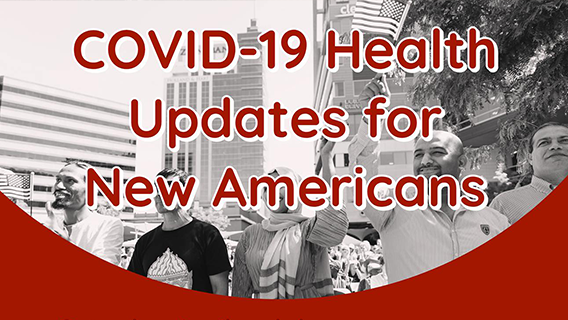The case investigation and contract tracing (CICT) process may involve several potential challenges when attempting to reach refugee, immigrant, and migrant (RIM) communities. Case investigators and contact tracers may be unable to reach or engage RIM community members during the initial phone call due to interpretation challenges, mistrust of answering an unknown phone number, or uncertainty/fear about what is being done with the information gathered. Developing strategies to increase knowledge and trust in RIM communities before receiving a CICT phone call may lead to more effective CICT efforts.
Increasing Success of CICT Calls
Due to the limited number of times a case investigator or contract tracer has to reach an individual, strategizing around creative ways to engage, educate, and increase awareness around CICT ahead of the first call can help ensure that the RIM community member answers the call, stays on the phone, and shares and receives important information. This includes preparing for language and interpretation access before making the call.
Utilizing WhatsApp to Reach RIM Community Members before CICT Calls
Members of the Abilene-Taylor County Public Health District reported challenges engaging with RIM community members during the initial CICT call. To address this challenge, health department staff utilized WhatsApp and sent texts to the RIM community member beforehand, informing them that a member of the health department would call them about CICT efforts. When RIM community members received a WhatsApp message prior to a phone call from a potentially unknown number, health department staff reported that RIM community members were more likely to pick up the CICT call.
Arabic | English | Kinyarwanda | Swahili | Somali

International Rescue Committee (IRC) Boise Office Creates Contact Tracing Videos Featuring RIM Community Leaders
To encourage RIM communities to answer and engage in contact tracing calls, the International Rescue Committee (IRC) in Boise--one of the refugee resettlement agency affiliates--coordinated with RIM community leaders to film themselves describing contact tracing in their preferred language. Key concerns from RIM communities were addressed in these videos, namely (1) contact tracers do not ask for information on immigration status; and (2) all information discussed is confidential. Other IRC affiliate offices like Tucson IRC launched similar initiatives with RIM community faith leaders and reported comparable successful outcomes. By receiving and watching the videos designed to increase knowledge about CICT, its purpose, and how it manages information, RIM community members may feel more confident answering contact tracing calls. Check out the detailed case study to learn more.
IRC Boise Office Hosts CICT Community Panels and Invites Contact Tracers
A successful strategy to engage a RIM community around CICT efforts included health departments partnering with local community-based organizations (CBOs) to host RIM community panels focused on CICT. During these virtual panels, community leaders discussed CICT and other topics around COVID-19, including addressing key myths, perceptions and concerns related to COVID-19. The CBOs also invited contact tracing staff to attend these community panels and learn more about the ways that RIM community members may respond to CICT calls. Contact tracers equipped with this knowledge from RIM communities may be better prepared to address RIM community members' concerns during CICT calls. One common concern expressed by RIM community members was fear of taking off too much time from work in the event that they had to isolate or quarantine for COVID-19. Having this information allowed CICT staff to plan how they would address this, including referencing worker leave policies and referring people to local, supportive resources. Check out the detailed case study to learn more.
Additional Resources
- “What is Contact Tracing?” Videos Featuring Community Members in Multiple Languages (NRC-RIM)
- COVID-19 CICT among Refugees, Immigrants, and Migrants: A Checklist for Health Departments (NRC-RIM)
- COVID-19 Case Investigation and Contact Tracing among Refugee, Immigrant, and Migrant (RIM) Populations: Important Considerations for Health Departments (CDC)